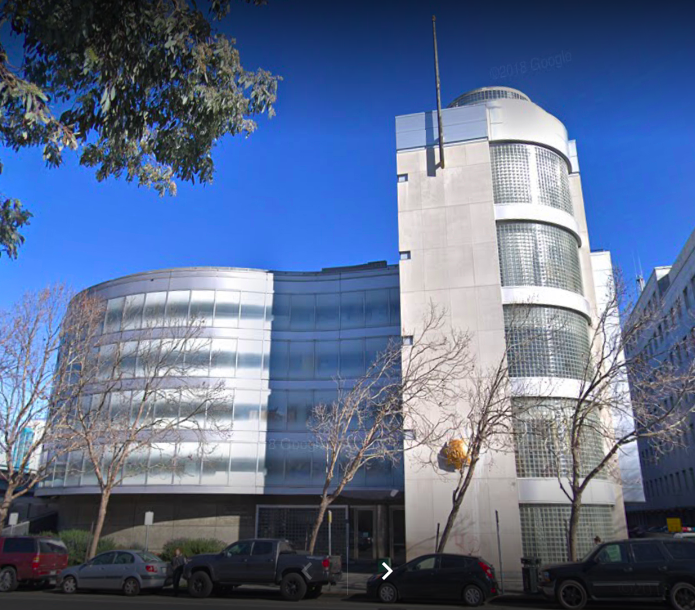
The San Francisco Superior Court has chosen not to continue the Zero Bail Policy that has reduced county jail populations across the state.
That, a broad coalition of legal and health advocacy groups says, is a likely reason that the number of COVID cases in the local county jail system has gone up 40 percent since June 18.

The group, which includes SF Public Defender Mano Raju and District Attorney Chesa Boudin, is calling on the court to return to the policies that were in place from April 13 to June 10.
The state Judicial Council, which oversees the courts, implemented the emergency zero-bail program in April to avoid the spread of the virus in jails, where social distancing is almost impossible. It allowed people charged with low-level offenses to be released almost immediately from custody after an arrest.
But the council ended that order in June – and while courts in Los Angeles, Alameda, Sacramento and Contra Contra Costa have simply continued with the policy, SF has gone back to its old rules.
Those rules, outlined in a settlement of a lawsuit against cash bail, allow a person charged with a minor crime to be held for as long as 30 hours before release. That’s more than enough time either to bring a viral infection into the jail or to become infected.
“Social distancing is already challenging in a jail, but San Francisco jails have successfully avoided a major outbreak of COVID by listening to medical experts and keeping the jail population low,” Dr. Lisa Pratt, director of the Department of Public Health Jail Health Services, said in a press release. “The decision to revoke the zero-bail policy fails to prioritize the real public health concerns of a spread of the virus in jail—and puts everyone who lives and works in jail—as well as those who interact with them—at higher risk of the virus.”
Under the emergency order, most people were released with a written notice to appear in court either at a police station or at jail intake, with minimal time spent behind bars.
Ken Garcia, a spokesman for the courts, told me that the judges are “following the guidelines of the Buffin Decision of the federal court.” The Buffin decision is the ruling that limited cash bail, but also allowed up to 30 hours of incarceration while the system evaluates a candidate for release.
But the SF court has every legal right to stick to the Zero Bail Policy. On April 13, federal Judge Yvonne Gonzalez Rogers, who ruled on the Buffin case, told the San Francisco sheriff that releasing people under zero bail was not inconsistent with her order:
The Final Judgment and Injunction does not prevent the Sheriff from enforcing the statewide Emergency Bail Schedule under Emergency Rule 4 insofar as it establishes an entitlement to release on $0 bail (including as qualified by the superior court’s authority to deny release on bail under the constitutional authority referenced in subdivision (d) of Emergency Rule 4). Such enforcement of the Emergency Bail Schedule is consistent with the Final Judgment and Injunction.
So why did the San Francisco Superior Court break with other big cities and return to a system that forces people who have been charged with a minor crime to spend a dangerous amount of time in jail?
Did the full panel of judges take a vote on this, or was it a unilateral decision of the presiding judge? If it was a vote of the judges, who voted which way?
It’s hard to say. Garcia hasn’t responded to that question.
“The Superior Court’s decision is shrouded in secrecy,” Matt Gonzalez, chief trial attorney for the Public Defender’s Office, told me. “But one thing is clear: The federal judge in the Buffin case is not the reason, since she has made it clear that zero bail is not inconsistent with her order.”
There are serious public health issues here. “Any additional time spent in custody because of the lack of Zero Bail increases the risk to individuals in the jail, our staff, community partners and Sheriff and Court employees,” said David Mauroff, CEO of the San Francisco Pretrial Diversion Project. “Reinstating zero bail supports our shared public health priorities and reduces jail exposure and the number of people in jail.”
It’s also a strange political statement. “Removing zero bail signals an assumption that our current public health crisis is over, which is clearly not the case,” said Raju. “As the crisis at San Quentin State Prison and in other overcrowded jails and prisons across the country makes abundantly clear, we can’t control the spread of the virus without dramatically reducing the incarcerated population. San Francisco Superior Court’s decision to move away from this policy means that people with low level, non-violent offenses eligible for immediate release just last month, are now being booked and held in jail before a judge can review their case. This increases the risk of spreading COVID-19 throughout the jail population and community.”
This is another example of the Superior Court – a branch of government run by judges who are elected officials – operating with little transparency. The meetings the judges hold for court administration are closed to the press and public. The presiding judge is elected with an anonymous paper-ballot system, so nobody knows who voted for whom.
And now, people in jail may get sick and die because of a policy that has no basis in law and that the judges either can’t or won’t explain.


